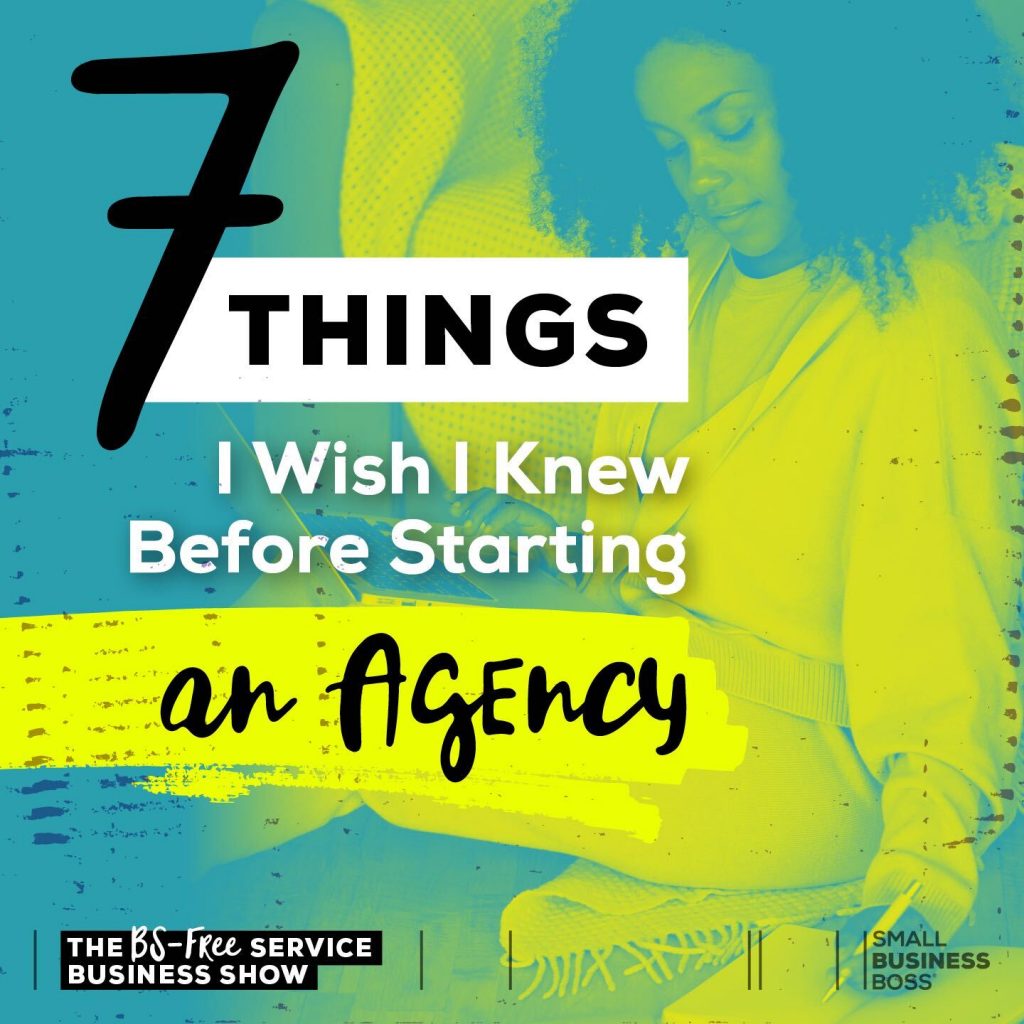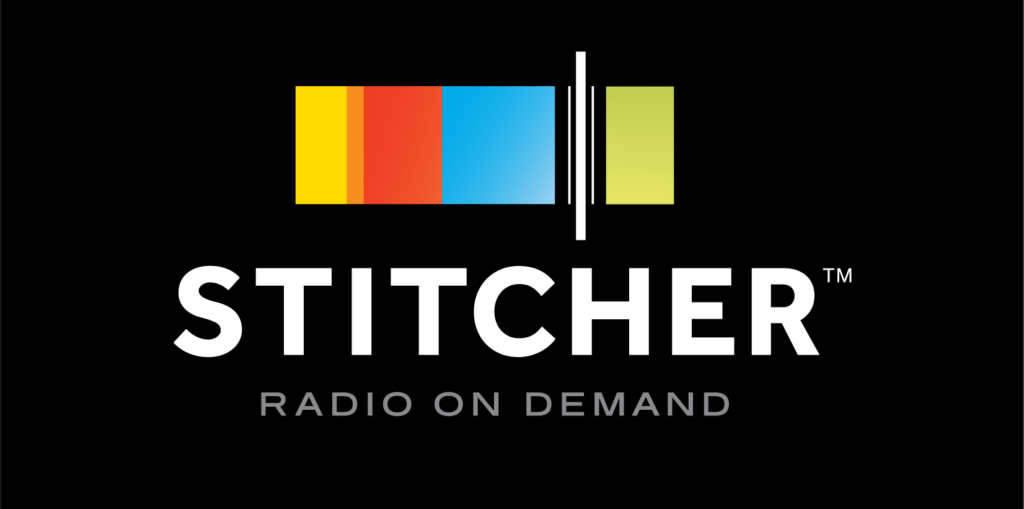
7 Things I Wish I Knew Before Starting an Agency
One of the most popular ways to scale a service business is by starting an agency. The idea being that by hiring a team, you can take on more clients and keep growing. But is that true? And what do you really need to know about running an agency?
In this episode, I’m sharing 7 things I wish I knew before starting an agency including a few things that may be unexpected.
If you’re a budding agency owner, or already in the thick of it, there are many moving parts with this business model. And as much as I’m a fan of this type of service business, like I shared in the last episode, it’s not for everyone.
The Backstory: Starting an Agency
When I started my content marketing agency Scoop Studios in 2016, I had big plans and a lot of bravado. I thought because I’d worked for five-plus years in an agency, and had spent more years working with agencies in varied capacities that I knew what I was in for.
While that helped, and gave me a solid foundation to work with, I’ve learned so much over the last six years.
I wanted to do this episode to give you a little behind-the-scenes of my own business, especially as a lot of what I currently see out there really hypes up the agency model as being a fast and easy way to “scale” your service business.
Have I been able to grow my business? Absolutely. But it hasn’t been fast or easy by any stretch of the imagination. And it’s definitely not the glitzy version of starting an agency you see in Facebook ads.
So here are seven things I wish I knew before I started on this journey. I’m sure I’d still go ahead, but I could have saved myself some time, stress and money along the way.
#1. Capacity is a Real Pain in the Ass
I’ve talked about capacity and capacity planning before here on the show, but let me tell you, the need to measure and manage capacity never ever goes away.
There are so many inputs that go into managing capacity that it can be challenging at times to get the right numbers. Hunches and guesses don’t cut it, and without the hard data, it’s hard to make decisions.
This is why you need to have a firm handle on both your personal and team’s capacity (time-wise) as well as emotional and energetic capacity. Life happens and we’re human, so this is always shifting.
The other part of this is your client-side. How much capacity do you need to meet your commitments? To bring on new clients?
This is why hours tracking, forecasting and more are part of my weekly and monthly reviews as the agency owner. It’s not perfect, but it provides me with a line of sight into where we really are, potential problems and even opportunities.
#2. Building a Financial Buffer is Everything
With an agency, your monthly operating expenses will rise, especially with your team costs. Every business has cycles and seasons, and you’ll experience financial fluctuations, which is why you need a cushion to fall back on.
The truth is, it’s hard to make sound business decisions when you’re freaking out about money. You don’t want to be one big client account leaving from having to not pay yourself, or let a team member go.
I’ve managed to build up a nest egg in the last few years, and I know if hard decisions need to be made or there’s a market force out of my control, we have months of expenses covered. The goal is to have enough runway to think clearly and make strategic decisions when things happen because they always will.
A good example of this was the week in March 2020 when we lost three clients because of COVID. We were able to withstand that blow as we had money in the bank, and for that I’m grateful.
It’s not always been that way. Early on with the agency, there were a few times that my pay (and my business partner’s) was delayed so we could meet expenses. One month in particular where about 90% of clients paid late stands out as we had to scramble to ensure things didn’t go off the rails.
I hated every minute of that and how it made me feel, so I vowed never ever again. I recognize how much privilege there is in this, and I have a lot of gratitude for being able to get to this point.
#3. Be a Hardass About Payment Terms
Speaking of late invoices, you need to be a hardass about payment terms. I grew up in an agency that billed at the end of the month and then was Net 30. Meaning 60 days or more would elapse before we’d get paid.
This is fairly typical for a lot of agencies, so I’ve had to strongly advocate for more favorable payment terms. It’s meant losing out on some clients, and a lot of negotiating with others.
Proposals and contracts outline payment terms that mitigate risk for us, as we have fewer resources than the companies we work for. We ask for payment in full for projects under $5,000 and do installments based on dates (no milestone payments) for bigger ones. For retainers, we invoice on the 25th of the month for the coming month with payment due on receipt.
We don’t always get paid immediately, but in many cases we do. In others, we’re getting paid partway through the month before we’ve done all the work required.
The one time I made an exception to this policy in recent years, we got screwed and had to write off one of that company’s invoices. Not cool, and I literally am still in awe of the audacity of their VP of marketing.
#4. Diversify Your Lead Sources Now
As a freelancer, and even as a solo business owner with support, my business ran mostly on networking and referrals. In the early years of the agency, that worked really well, until it did not, and we needed to change the types of clients we were working for.
I’ve shared this before, but I had a very hard conversation with my business partner at the time about how we needed to step up and find new ways of bringing in clients. She asked if we needed a salesperson, and I told her point-blank that the real problem was we actually had to find more potential clients. Closing wasn’t the issue, it was the number of leads we had coming in.
That was a turning point, and I can see now how that changed everything. I was actually sort of pissed that she thought we needed a salesperson, so I went full force to convince her that my take on the situation was right.
I did a ton of online and in-person networking like never before. I taught and spoke, and then we started doing cold outreach via LinkedIn. More lead sources made finding right-fit clients much easier, and we were able to say no to clients that we weren’t excited about.
If you’re not already, track your lead sources carefully so you can get a handle on where the opportunities and threats are. This is one of the key pieces of data members of the Agency Mastermind track on our Agency KPI Dashboard, and it’s always an eye-opener. (And something you absolutely should have when starting an agency.)
#5. Rethinking Leadership
One of the big reasons I resisted the agency model for so long was that I didn’t want to manage anyone. I’d been there, and done that, and I wasn’t sure I was particularly good at it.
I’m introverted, prone to anxiety….plus an INTJ and Enneagram 8. My brain works fast….all of this can make managing, and more importantly, leading hard.
I’ve had to find a way to lead that works for me, works for my team, and delivers for our clients. I’ve had to learn how to delegate and provide feedback and put guardrails in place to eliminate the things that piss me off the most. (Content review checklist is that you?)
I wish I knew sooner that I was actually a better leader than I realized, and that leadership isn’t this corporate-type model that requires power suits. I can show up and be my messy self without causing chaos, and build something great in the process.
#6. Hiring is Harder Than Anyone Ever Tells You
Hiring is something that people talk about a lot, but it’s usually in one of two ways. This magical type of way where you find a dream team and ride off into the sunset. The other version is about how hard hiring is….but mainly in order to sell you their services.
When you think about starting an agency you don’t know that hiring is a different type of hard. Sure, the process of finding the right person can be a challenge, but no one talks nearly enough about how long it takes to get that person (no matter how amazing they may be) where you want them to be.
Even with systems. Even with training. Even with processes.
It takes time. Usually about 4x longer or more than you anticipate. But for me, it’s been worth it.
Speaking of time, that time is required to build trust with anyone you hire. There’s no shortcutting that, and when you have a business that requires a unique set of skills to make the business run, trust is essential.
#7. Go Pro With Your Brand
With a microagency, especially if you’re built on referrals or word of mouth, it’s easy to overlook your brand. But having invested in my brand in the last two years, I can tell you it’s worth every penny.
The current Scoop brand, created by Jessica and the team at Perennial Creative, brings a level of professionalism and polish that we were lacking before. Honestly, I kind of hated our version 1.0 brand, it was dark and unsophisticated.
My relationship with the brand definitely held me back in terms of how I presented decks to clients and even our proposals. I always worried if it was good enough.
I can tell you that here in year six, I’m finally happy with the brand, and when I send something to a client like a content strategy, I know the content won’t be overlooked as the branding and design is falling short.
Get Support on Your Agency Journey
That’s it. When I picked this topic I wondered if I would have enough things to share, but I could have probably had about 10 more. My hope is that this has given you some food for thought about your journey to starting an agency or your current agency.
Of course, hindsight is 20/20 as they say, so I would only change a few things if I had the chance. The check out the Agency Mastermind and get on the wait list for our next round.


